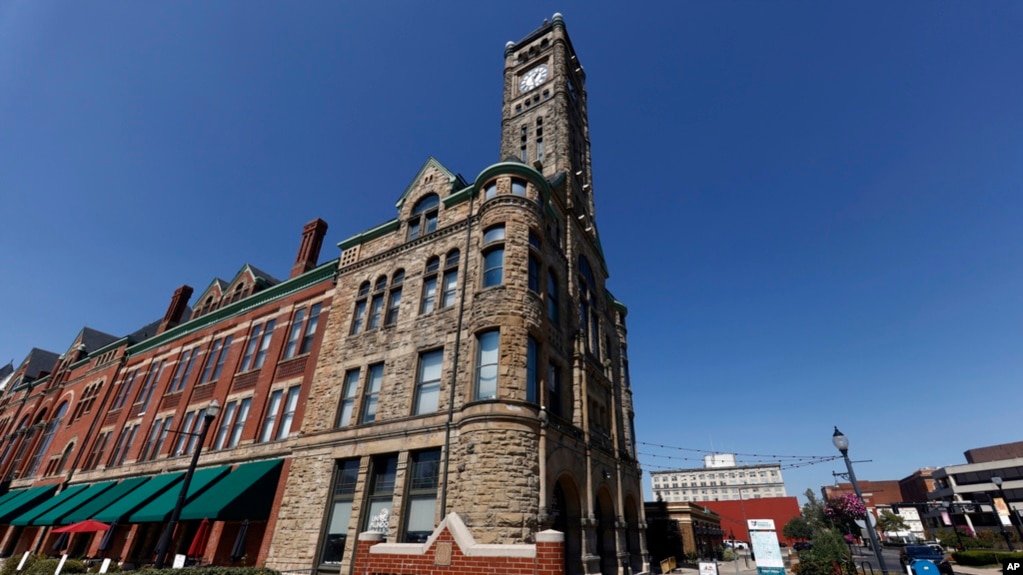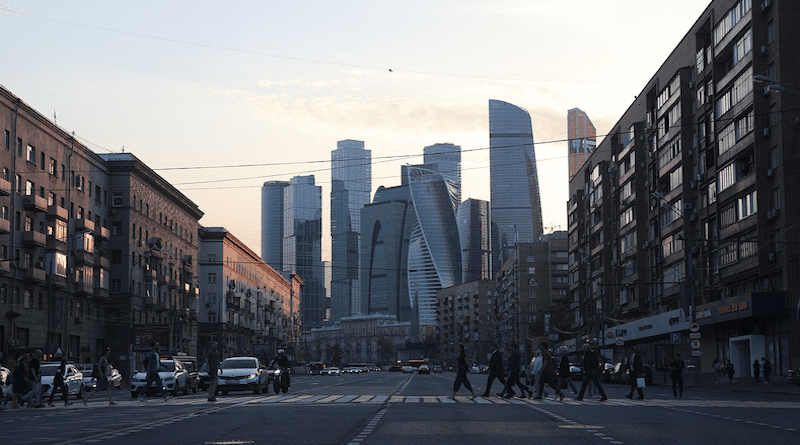By Zhao Zhijiang
Once upon a time, American media and journalists were undeniably the “fourth estate” of society, playing a crucial role in helping the public understand issues, express public opinions, and oversee and balance the power of the U.S. government. They were the “watchdogs” and “whistleblowers”, confident and courageous. Historically, American media dared to critique social issues, maintain objectivity, and expose political scandals and social problems. A prominent example of this is the Washington Post’s exposure of the Watergate scandal in 1972, which led to President Richard Nixon’s resignation. Another example is the Boston Globe’s team whose investigative reporting in the early 2000s revealed the scandal of Roman Catholic priests sexually abusing minors.
However, today’s American media, whether traditional or not, has increasingly aligned itself with political sides, abandoning its professional stance and directly joining political factions. Many journalists are now engaged in highly politicized propaganda or spreading fake news. At the very least, they are cautious with their wording, self-editing to ensure “political correctness”. In more extreme cases, some journalists have completely lost their independence, directly using question lists provided by interview subjects. For example, in July this year, The New York Times reported that President Joe Biden’s campaign team would provide questions to journalists in advance, and some journalists complied with this practice.
Why has the American media become like this?
According to ANBOUND’s founder Mr. Kung Chan, this situation is related to the tycoons behind American media. These business giants have recognized that the future is a political era, and to have a voice in politics, they need a platform to speak. Thus, they invest heavily in buying media outlets, aiming to influence politics. This is an important way for them to participate in politics. A perhaps unsettling reality is that business magnates and CEOs of tech companies have become some of the most important political gatekeepers in modern media history. Figures like Rupert Murdoch, Jeff Bezos, and Elon Musk are typical examples of business tycoons who have intervened in politics through media acquisitions.
To cite an example, Rupert Murdoch entered the American news industry in the 1970s. He first acquired the San Antonio Express-News and the San Antonio News, and later bought the New York Post, which continues to dominate both media and political realms. In 1986, Murdoch expanded into television by acquiring several American TV stations and founding Fox Broadcasting Company. His enthusiasm for the newspaper business remained strong, and he was willing to pay a high price. A notable example is his 2007 acquisition of Dow Jones & Company, the parent company of The Wall Street Journal, for USD 5 billion, a 67% premium over the stock price before the bid was made public. Under his management, The Wall Street Journal expanded its focus beyond finance and markets, successfully implemented a paywall, and maintained a conservative commentary section while retaining a degree of centrist tone.
It is worth mentioning that with former President Donald Trump gaining power within the Republican Party in 2015, Murdoch’s media empire and Fox News Channel shifted from being conservative to becoming a stronghold of right-wing propaganda. Fox News not only became a hub for climate change conspiracy theories and their promoters but also covered topics such as illegal immigration, election results, and the COVID-19 pandemic. Critics of Murdoch argue that his media outlets, particularly Fox News, have contributed to the vulgarization of American political discourse and deepened social divisions. Murdoch has responded by claiming that Fox News provides fair and objective content, suggesting that it is the elite journalists of the establishment who have disconnected from ordinary viewers. Murdoch thus positioned himself as an anti-establishment grassroots hero. As another representative of the anti-establishment, Trump naturally aligned with Murdoch and the influence he wielded.
Like Rupert Murdoch, Amazon founder Jeff Bezos has also sought to enhance his political influence through media acquisitions. In 2013, he announced his purchase of The Washington Post for USD 250 million. Following the announcement, The Washington Post Company’s stock price surged to a five-year high. Additionally, Bezos acquired several other newspapers and magazine businesses under The Washington Post. On the surface, Bezos’s acquisition of The Washington Post seems to reflect the challenges traditional media faces in the Internet Age, such as declining subscription numbers, and the need to maintain core competitiveness while integrating various media platforms to reach new heights. However, this might only be one aspect of the story. The acquisition could also be driven by a desire to gain political leverage. It is noted that The Washington Post remains the dominant newspaper in Washington, D.C., with numerous Pulitzer Prizes. More importantly, Washington, as the political center of the U.S., provides Bezos with an ideal platform for shaping public opinion.
The Washington Post has indeed elevated Bezos’s political standing. For example, during the 2016 U.S. presidential election, Bezos established a dedicated reporting team at The Washington Post specifically to investigate and publish damaging information about Donald Trump. As a result, towards the end of the campaign, Trump’s team placed The Washington Post on a media blacklist, banning its reporters from attending campaign events. After Trump’s election, The Washington Post continued its rigorous scrutiny of him, publishing exclusive and in-depth reports on incidents such as the dismissal of former FBI Director James Comey and Russiagate which infuriated Trump. Trump has derisively referred to The Washington Post as merely Amazon’s “chief lobbyist”. He has categorized mainstream media outlets that reported negatively about him, such as The Washington Post, The New York Times, CNN, and MSNBC, as “fake news”, while praising the right-leaning Fox News.
Unlike Murdoch and Bezos, Elon Musk has engaged in political influence by acquiring a non-traditional media platform, i.e., social media. In late October 2022, Musk completed his USD 44 billion acquisition of the social media network Twitter, which he privatized on October 28. Thus, Twitter officially entered the “Musk era”, and Musk subsequently renamed it “X”. On the surface, this appears to be a typical business transaction. In reality, acquiring Twitter gives Musk significant political capital. Conservative media figure Andrew Breitbart has noted that “meta-politics” involves patient cultivation of influence, where politics is seen as “downstream from culture”. While politics is downstream from culture, culture itself is downstream from information infrastructure. In the digital and information age, owning a major social network platform effectively allows one to control and influence the cultural formation of the information era. Therefore, Musk’s acquisition of Twitter can be seen as an attempt to actively shape public opinion, information dissemination, and political influence.
The Wall Street Journal recently analyzed Elon Musk’s tweets over the past five and a half years and found that as he increased his activity on social media, the frequency of political keywords in his tweets surged over 200 times, while mentions of business-related terms decreased. Five years ago, Musk’s tweets primarily focused on company news, with occasional memes and jokes. Now, he posts about political issues almost daily on the social media platform X and supports former President Trump’s presidential campaign. Trump clearly appreciates Musk as well, not only returning to X to discuss election politics with him but also recently expressing a desire for Musk to lead a” government efficiency commission” to conduct “a complete financial and performance audit of the entire federal government”. In response, Musk remarked, “I look forward to serving America”.
It is worth noting that since Murdoch’s acquisition of American media, the prices of media transactions have been on the rise rather than declining. For business tycoons, this represents an excellent investment, with the political added value of such transactions being even more attractive. In the future, tycoons might be driven to acquire media outlets to gain a voice and consequently exert political influence. However, this trend also contributes to and exacerbates the polarization of American media, which increasingly abandons objectivity.
When consuming American news today, it is crucial to consider the media’s background. Media outlets with a Democratic left-leaning bias will likely not permit right-wing viewpoints to appear. They have largely abandoned the principles of neutrality and objectivity, becoming tools for left-wing political propaganda and serving as platforms for American intellectuals. They scrutinize every word or action from Trump and other figures on the opposite end of the political spectrum with a magnifying glass, amplifying their content without hesitation. Therefore, information from these media sources needs to be filtered and analyzed rather than taken at face value. In contrast, right-wing media, which is often eager to spread conspiracy theories and publish unchecked news, has also become a “discredited, opinion-manipulation machine” and is increasingly marginalized. A Gallup poll released in October 2023 shows that trust in the media among Americans has reached an all-time low. Only 32% of respondents expressed a “great deal” or “fair amount” of trust in the media’s ability to report news in a complete, fair, and accurate manner. This decline is not a random occurrence but rather a result of business tycoons’ involvement in politics, which has gradually eroded the media’s credibility.
Final analysis conclusion:
Business tycoons spending large sums to acquire American media is a significant way for them to engage in politics. In an era increasingly dominated by politics, having a voice in political discourse requires having a platform. For tycoons, acquiring media outlets is an excellent investment for increasing wealth and political influence. Meanwhile, American media have become more and more aligned with specific political sides, abandoning objectivity and becoming filled with biased content.
- Zhijiang Zhao is a Research Fellow for Geopolitical Strategy programme at ANBOUND, an independent think tank.







